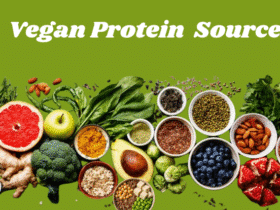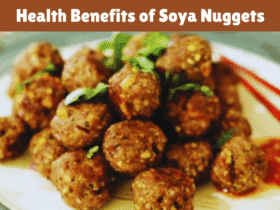Soya chaap, a versatile and protein-packed vegetarian option, has gained immense popularity in recent years. As individuals become more conscious of their dietary choices, understanding the protein content in soya chaap compared to non-vegetarian alternatives becomes crucial.
Introduction
In the world of nutrition, protein plays a vital role in maintaining overall health and well-being. Whether you’re a vegetarian or someone exploring meat alternatives, soya chaap emerges as a noteworthy protein source.
Understanding Soya Chaap

What is Soya Chaap?
Soya chaap is a vegetarian product made from soybean flour. It offers a unique texture and taste, making it a popular choice among those seeking meat substitutes. Besides being a culinary delight, soya chaap provides essential nutrients, with protein being a standout component.
Nutritional Composition of Soya Chaap
Before delving into the protein content, let’s explore the nutritional profile of soya chaap. Rich in vitamins, minerals, and fiber, soya chaap proves to be a wholesome addition to any diet.
Also Check :- Vezlay Soya Chaap
Protein in soya chaap per 100g
Protein Table for Soya Chaap
Let’s break down the protein in soya chaap per 100g with a detailed table:
| Soya Chaap Product | Protein in Soya Chaap per 100g |
|---|---|
| Soya Chaap Rolls | 20g |
| Soya Chaap Nuggets | 18g |
| Soya Chaap Sticks | 22g |
Comparison with Other Vegetarian Protein Sources
How does soya chaap measure up against other vegetarian protein sources? Let’s compare:
| Protein Source | Protein per 100g |
|---|---|
| Soya Chaap | 20g |
| Tofu | 8g |
| Lentils | 9g |
| Chickpeas | 19g |
Protein in Non-Vegetarian Food Products
While soya chaap proves to be a robust protein source for vegetarians, it’s essential to compare it with non-vegetarian alternatives.
Overview of Protein Sources in Non-Vegetarian Diet
Non-vegetarian diets typically include a variety of protein-rich foods, such as meat, poultry, and seafood. These options provide essential amino acids crucial for bodily functions.
Comparative Protein Table for Non-Vegetarian Food Products
| Non-Vegetarian Product | Protein per 100g |
|---|---|
| Chicken Breast | 31g |
| Salmon | 25g |
| Beef | 26g |
| Eggs | 13g |
Health Benefits Associated with Soya Chaap Protein
Benefits of Soya Chaap Protein
Soya chaap protein offers several health benefits, including:
- Lower cholesterol levels
- Improved heart health
- Weight management
Why It's a Preferred Protein Source for Vegetarians
Soya chaap provides a complete protein source for vegetarians, ensuring they meet their nutritional requirements without relying on meat products.
Balancing Protein Intake
Importance of a Balanced Protein Intake
Maintaining a balanced protein in soya chaap intake is essential for muscle health, immune function, and overall well-being. Soya chaap proves to be an excellent choice to achieve this balance.
Combining Soya Chaap with Other Protein-Rich Foods
Enhance your protein in soya chaap intake by combining soya chaap with other protein-rich foods like beans, nuts, and dairy products.
Vitamins and Minerals in Soya Chaap
In addition to its protein and fiber content, soya chaap also serves as a rich reservoir of essential vitamins and minerals. This includes noteworthy quantities of iron, calcium, and B-vitamins, all of which play pivotal roles in supporting various bodily functions and fortifying overall well-being. Iron, for instance, is indispensable in the production of red blood cells, while calcium bolsters bone health and B-vitamins contribute to the body’s metabolic processes.
The amalgamation of these vital nutrients within soya chaap underscores its potential to serve as a multifaceted addition to your dietary regimen, offering a holistic blend of macronutrients and micronutrients that can enrich your daily intake.
Soya Chaap vs Non-Vegetarian Proteins
Pros and Cons of Soya Chaap Protein
Soya chaap has its advantages, such as being cholesterol-free and environmentally friendly. However, individuals should be aware of its processing methods and potential allergens. Soya Chaap can be a valuable addition to a balanced diet, providing a rich source of plant-based protein and essential nutrients. However, individuals should be mindful of potential allergenic reactions, antinutrients, and personal preferences regarding genetically modified foods. As with any dietary choice, moderation and individual tolerance should guide its incorporation into one’s nutrition plan.
Comparisons with Non-Vegetarian Protein Sources
When deciding between soya chaap and non-vegetarian proteins, consider factors like taste preference, dietary restrictions, and ethical considerations.
Non-Vegetarian Sources: Meat, poultry, fish, and eggs are renowned for their high protein in soya chaap content, often with a complete amino acid profile. Non-vegetarian sources generally offer a wider variety of proteins, including heme iron found in animal products.
Nutrient Diversity :- Animal-based proteins are often rich in nutrients such as heme iron, omega-3 fatty acids (in fatty fish), and vitamin B12. These nutrients are crucial for functions like oxygen transport, heart health, and nerve function.
Incorporating Soya Chaap in Your Diet
Creative Ways to Include Soya Chaap in Meals
Soya chaap’s versatility allows for various culinary creations. Try it in curries, wraps, or grilled dishes for a delightful protein boost.
Recipes and Meal Ideas for a Protein-Rich Diet
Explore new recipes that incorporate soya chaap, ensuring a delicious and protein-packed meal for vegetarians and non-vegetarians alike.
Sustainability Aspect of Soya Chaap
Eco-Friendly Benefits of Choosing Soya Chaap
Opting for soya chaap aligns with sustainability goals, as soy production has a lower environmental impact compared to some non-vegetarian options.
The Environmental Impact of Non-Vegetarian Protein Sources
Considerations like deforestation and greenhouse gas emissions associated with non-vegetarian protein production highlight the ecological benefits of choosing plant-based alternatives.
Soya Chaap for Different Dietary Needs
Suitable for Various Dietary Preferences
Soya chaap caters to diverse dietary preferences, accommodating vegans, vegetarians, and those with specific dietary restrictions.
Adaptable for Specific Health Conditions or Fitness Goals
Whether you’re focusing on muscle gain, weight loss, or overall health, soya chaap can be tailored to meet your specific health and fitness goals.
Common Misconceptions about Soya Chaap
Addressing Myths and Misunderstandings
Clearing up common misconceptions about soya chaap, such as concerns about estrogen levels and genetic modification, helps individuals make informed choices.
Clarifying Its Role in a Healthy Diet
Soya chaap can be part of a healthy diet when consumed in moderation and as part of a well-balanced meal plan.
Testimonials and User Experiences
Real-Life Stories of Individuals Benefiting from Soya Chaap Protein
Read about individuals who have incorporated soya chaap into their diets and experienced positive changes in their health and well-being.
Positive Experiences and Transformations
Discover how soya chaap has contributed to weight loss, improved energy levels, and overall lifestyle enhancements for individuals worldwide.
Expert Opinions on Soya Chaap
Insights from Nutritionists and Health Experts
Nutritionists and health experts share their insights on the nutritional benefits of soya chaap and provide recommendations for its inclusion in a balanced diet.
Recommendations for Incorporating Soya Chaap in Diets
Experts suggest creative ways to include soya chaap in diets, ensuring a diverse and nutrient-rich approach to protein consumption.
Conclusion
In conclusion, soya chaap stands as a commendable protein in soya chaap source, offering a plethora of benefits for individuals with diverse dietary preferences. Whether you’re a vegetarian looking for protein alternatives or a non-vegetarian exploring sustainable choices, soya chaap provides a nutritious and eco-friendly option.
FAQs
Is soya chaap suitable for individuals with soy allergies?
- Soya chaap may not be suitable for individuals with soy allergies. It’s essential to consult with a healthcare professional before incorporating it into your diet.
Can soya chaap be a complete protein source for vegetarians?
- Yes, soya chaap is considered a complete protein source as it contains all essential amino acids necessary for the body.
How does the protein content in soya chaap compare to meat?
- While meat products may have higher protein content, soya chaap provides a comparable amount, making it a valuable alternative for vegetarians.
What are some creative recipes using soya chaap for a protein-rich diet?
- You can try soya chaap in curries, stir-fries, and grilled dishes for a protein-packed and flavorful meal.
Is soya chaap environmentally friendly?
- Yes, soya chaap is considered environmentally friendly due to its lower ecological impact compared to some non-vegetarian protein sources.












Leave a Reply